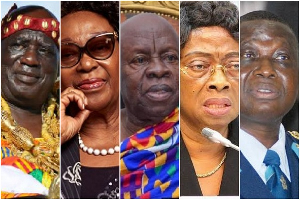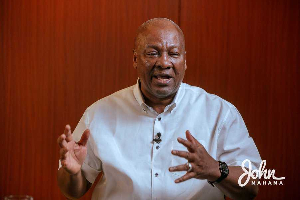The Ghana Chamber National Chamber of Commerce and Industry (GNCCI) has held a Business-to-Business (B2B) meeting with their Turkey representatives with the hope of bridging the 57 percent trade deficit it has with Turkey.
According to Nana Appiagyei Dankawoso I, President of the GNCCI, although statistics from the International Trade Centre (ITC) showed that Turkey was the third largest trading partner in Sub-Saharan Africa. Ghana’s exports to Turkey in 2017 amounted to $128 million, while its imports from Turkey were $224 million.
This represented a 57 percent trade gap that could be bridged for the mutual benefit of both countries, he said.
Nana Dankawoso I, speaking at the Ghana-Turkey B2B Meeting held in Accra on Monday in collaboration with the Ghana-Turkey Business Council and others, said that the GNCCI stood ready to support any agenda that promoted trade and provided opportunities for local industries to compete on the international market.
Mr. John Alan Kyeremanteng, Minister for Trade and Industry commended the timing of the event, saying that it was a good time for Ghana and Turkey to re-engage and build on the historical bonds of friendship that they have enjoyed over the years but which had not received guidance to deepen.
Turkey, he noted, had grown to become one of the most competitive industrialised economies in the world, while Ghana was also now recognised as of the most attractive investment destinations on the African continent.

“…If there’s one partner that Ghana should be looking to work with, I think it should be Turkey, and if there’s one country in Africa that Turkey should be seeking to do business with I think it should be Ghana,” he stated.
He explained that government’s economic transformation plan, hinged on the four pillars of building a resilient macroeconomic environment, agriculture modernization, industrial transformation, and infrastructure development, showed its commitment to making Ghana attractive for investment.
He added that government’s focus on decentralizing industrialization through programmes like the one district one factory, one region one industrial park as well as ten other strategic anchor sectors including petrochemicals, integrated aluminium and bauxite industry and pharmaceuticals, presented strategic entry points for Turkish investors in Ghana.
Ms. Nesrin Bayazit, Ambassador of the Republic of Turkey to Ghana, said Turkey was celebrating 60 years of diplomatic relations with Ghana this year, with Turkish companies investing in Ghana in sectors such as construction, manufacturing and services.
She noted that the existing political stability, strong democracy and skilled young people made Ghana a choice for Turkish investors.
“At present, Turkish investments in the construction sector in Ghana amount to half a billion dollars,” she said, adding that Turkey was targeting an increase of up to one billion dollars with Ghana in the nearest future.
She also noted that the Turkish government supported Ghana’s flagship projects such as the 1D1F, Planting for Food and Jobs among others, and had investors exploring the possibilities for investment.
“Within the scope of 1D1F, a Turkish company had already started the process to establish a bus assembly plant in Cape Coast. Another Turkish company is working on establishing a cement factory in Tema and there’s also a Turkish company looking into the possibility of establishing a starch factory in the Volta region,” she stated.

Dr. Yaw Adu Gyamfi, President of the Association of Ghana Industries (AGI) stressed the need for the Ghana-Turkey partnership to focus on production in Ghana for exports to other markets in Africa rather than imports, in line with the Ghana Beyond Aid agenda.
Business News of Tuesday, 27 November 2018
Source: ghananewsagency.org

















